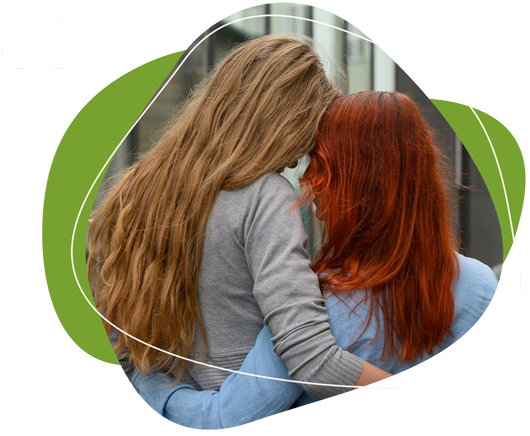It can be very worrying when someone you care about is being hurt or abused by a partner or family member. It is difficult to know what to do, what to say or how to help.
Family violence can happen in a marriage, in a de-facto relationship, in a gay or lesbian relationship, to people with a disability who rely on their carer, between parents and children. The violence or abuse could also be by a young person against a parent or relative.
Abuse or family violence can affect anyone, regardless of race, culture, religion, ability, income level, or sexuality.
Abuse in an intimate partner relationship is common, and is mainly perpetrated by men against women. It can be difficult to understand why someone would stay in a relationship if she is being abused. It is hard to imagine what it is like, when you are not in the situation yourself. From the outside, it may seem easier to leave than it actually is. There are many reasons why it may be hard to end the relationship:
- She is afraid of what the abuser will do if she ends the relationship
- She still loves her partner
- She thinks the abuse is her fault
- She hopes her partner will change
- She feels she should stay with her partner for the sake of the children
- If she has a disability, she may depend on the abuser for everyday assistance
- She feels pressure to stay with her partner from family, her community or church
- She doesn’t have the means to survive (ie. where she would live, access to money or transport, etc)
What can you do to help?
You may be unsure if your friend or relative is being abused. Maybe you just have a sense that something is ‘wrong’ in her relationship. There may not be any obvious signs of abuse.
Approach your friend or relative in a sensitive way. Tell her you are worried about her and explain why. Don’t push her into talking if she is uncomfortable, but let her know that you are there is she needs to talk. She may not be ready to admit to being abused, or may feel embarrassed, ashamed or afraid to talk about it.
If she feels supported and encouraged, she may feel stronger and more able to make decisions. The most important thing you can do is to listen without judging, respect her decisions, and help her to find ways to stay safe and become stronger. How you respond and your support can make a big difference.
You could also help her to protect herself. You could:
- Help her plan where she and the children could go in an emergency, or if she decides to leave.
- Help her to prepare an excuse so she can leave quickly if she feels threatened.
- Agree on a code word or signal that she can use to let you know she needs help.
- Help her to prepare an “emergency bag” of her belongings, and hide it in a safe place. This may include money, keys, clothes, banks cards, drivers licence, medication, birth certificates and any other important documents for herself or her children.
Family violence and abuse is a violation of human rights and is never acceptable in any form, in any community or culture.
Click here for a list of services that can help.


